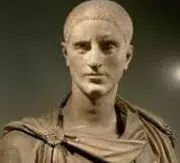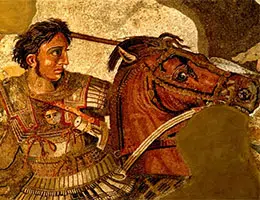 With etymological origin in the Latin magnus , magno is an adjective that qualifies one or that thing that is great (that is, that manages to surpass what is usual or conventional). Many times the term is written with a capital letter to be used as an epithet to describe a person.
With etymological origin in the Latin magnus , magno is an adjective that qualifies one or that thing that is great (that is, that manages to surpass what is usual or conventional). Many times the term is written with a capital letter to be used as an epithet to describe a person.
Alexander the Great , to cite one case, is the name by which the man who was king of Macedonia between the years 336 BC and 323 BC is known. C. Also mentioned as Alexander the Great and as Alexander III of Macedonia , he remained in history for his conquests and for the cultural and political changes that he managed to impose.
His parents were Olympias of Epirus and Philip II of Macedonia . From his childhood, he received from his father the necessary training to reign, both on a military and intellectual level ( Aristotle himself was in charge of this aspect).
Alexander the Great's accession to the throne was a difficult part of his history, as he and his mother were exiled by Philip II, who accused him of being an adulterous son. His mother had to remain in Epirus. Alejandro's friends were also the focus of his father's suspicions, who was murdered shortly after.
During the first part of his mandate, Alexander the Great did everything possible to impose himself on the people who had rebelled after the death of his father. His dominion reached all of Greece and, following in the footsteps of Philip II, he determined to conquer the empire of Persia in revenge for the harm that had been caused to them for centuries.
Among its objectives was to recover the cities on the coast of Asia Minor, as well as the islands of the Aegean Sea. After having prepared an army of forty thousand soldiers, most of whom were Macedonians, in the year 334 BC. C. directed it towards enemy territory.
Throughout the thirteen years of his reign, Alexander the Great completely restructured cultural and political aspects, largely due to the conquest of the Achaemenid Empire and the beginning of an era of great cultural exchange, in which the Greeks They paved the way for new lands.
The exploits of Alexander the Great gave rise to the birth of an entire myth , which often prevents us from considering him as a human being, no matter how brilliant he may have been. This is a figure that many historians have elevated to the level of a divinity.
The expansion of his Empire throughout his reign was considerable: it reached the Indus Valley to the East and Egypt to the West. He founded many cities , which stood out for their cultural wealth.
 A Saint Gregory o Gregory I, en tanto, se lo llama Gregory the Great. Nacido en 540 y fallecido en 604, se trata del cuarto dad que tuvo la Iglesia católica.
A Saint Gregory o Gregory I, en tanto, se lo llama Gregory the Great. Nacido en 540 y fallecido en 604, se trata del cuarto dad que tuvo la Iglesia católica.
When seeking to refer to the greatness , splendor or magnitude of something, the adjective magno can be used. This word, in any case, is not frequently used in colloquial language , although it can appear in the media and in formal settings.
For example: «Great start to the International Contemporary Music Festival: more than 10,000 people enjoyed the concerts that took place with free admission in the Central Park» , «The civic celebration included a great parade through the streets of the city» , "The government announced the holding of a great spectacle to celebrate 100 years of independence."
Magic Magno , on the other hand, is a Spanish rap and hip hop artist, while Magno is the name of a restaurant and bar in the City of Buenos Aires ( Argentina ).
